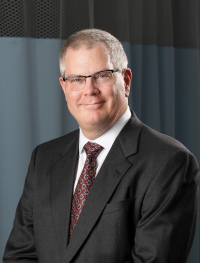Breast Cancer Screening or Why Should I Bother?
Breast Cancer – Two words no woman ever wants to hear - so why go looking for trouble? However, most women today have heard the statistics: 1 in 8 women in the U.S. will develop breast cancer in their lifetime. To put it in personal terms, if you go to the grocery store, church, or even to a family reunion and see 24 women - 3 of them will have had or get breast cancer. That’s right - your friends, neighbors and family are at risk and so are you.
So what can you do about it? Well, we have all heard the old saying “the early bird catches the worm” and it definitely applies to breast cancer. Early detection is the key and good screening leads to early detection. There is general agreement among most of the experts on screening recommendations which include breast self examination, clinical breast examination by a health care professional and mammography.
Breast self examination (BSE) is just that - check your own breasts on a monthly basis. Its easy to learn and do, takes less than five minutes and instructions are available online, from your doctor or at the TidalHealth Breast Center. Women should start this monthly exam by age 20 but I would encourage an early start - those healthy habits started young tend to persist as you get older. If you find a lump, nipple discharge or other abnormality, notify your doctor. A clinical breast examination (CBE) can be done by your OB/GYN, primary care office or at the PRMC Breast Center. Again, start at age 20 with clinical breast exams at least every 3 years and then annual exams after age 40.
Annual mammograms start at age 40 and have been proven to reduce the mortality from breast cancer. Screening recommendations change for those women who are at an increased risk for developing breast cancer - i.e. screening exams and mammograms should start 10 years prior to the age that any first degree relative (mother or sister) was diagnosed with breast cancer. This means that if your mother was diagnosed with breast cancer at age 40, your screening including mammograms should start at age 30 (but screening does not need to start before age 25).
Although BSE, CBE and mammography are basic screening, additional tests may also be used such as breast sonograms and/or MRI. These tests cannot replace mammography but can yield valuable information. Ultimately, an abnormality may require consultation with a surgeon and a biopsy to prove if cancer is present. Breast biopsies obtain a tissue sample to be examined under a microscope and are usually minimally invasive- performed with a needle which can be guided to the area of concern using mammography (called a stereotactic biopsy), sonogram or MRI. The result of the biopsy is generally available in 3 to 5 days and most abnormalities are not cancer (85-90% of biopsies are benign).
But what if, after a biopsy, you hear those two words - Breast Cancer? Know that with modern treatment, the majority of patients with breast cancer are cured. The best cure rates are due to diligent screening which results in early detection. Early detection has a five year survival rate of over 90% and “breast cancer survivor” are the words we all want hear.

David T. Walker, M.D.
Medical Director, TidalHealth Breast Center
Past President, Mid-Atlantic Surgical Group
